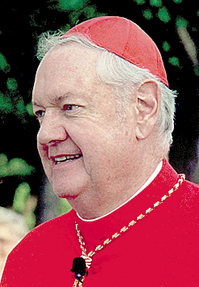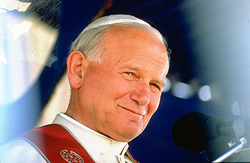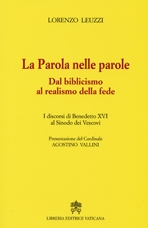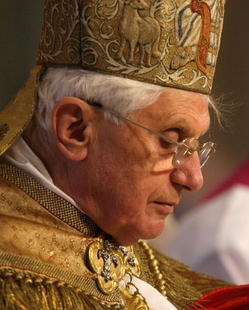This new book, Called to Love: Approaching John Paul II’s Theology of the Body, due to be released on April 14, discusses John Paul II’s theology of the body and the meaning of human love. This interview appeared in the April 2009 issue of Columbia magazine, the organ of communication of the Knights of Columbus. I am grateful for the opportunity to re-publish it here.
By the Columbia Staff
From 1979 to 1984, Pope John Paul II delivered 129 Wednesday audiences in which he presented a vision of the human person, created as a unity of body and soul, and the vocation of every person to love. The pope’s catechesis, which has become known as the “theology of the body,” is considered by many to be revolutionary, as it develops profound truths about man’s most basic experiences — who we are and who we were created to be.
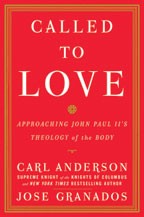 A new book about the theology of the body, which is being published this month, was co-authored by Supreme Knight Carl A. Anderson and Father José Granados, assistant professor at the Pontifical John Paul II Institute for Studies on Marriage and Family at The Catholic University of America in Washington, D.C. Titled Called to Love: Approaching John Paul II’s Theology of the Body (Doubleday), the book sheds light on the significance and implications of the pope’s insights. Columbia spoke with Supreme Knight Anderson and Father Granados about their new book.
A new book about the theology of the body, which is being published this month, was co-authored by Supreme Knight Carl A. Anderson and Father José Granados, assistant professor at the Pontifical John Paul II Institute for Studies on Marriage and Family at The Catholic University of America in Washington, D.C. Titled Called to Love: Approaching John Paul II’s Theology of the Body (Doubleday), the book sheds light on the significance and implications of the pope’s insights. Columbia spoke with Supreme Knight Anderson and Father Granados about their new book.
Columbia: The word “theology,” for many, denotes abstract ideas about God. What, then, does Pope John Paul II mean by the phrase “theology of the body,” which may sound radical or even contradictory?
Father Granados: Theology does not only deal with our questions about God; it deals mainly with God’s word to us — that is, the way he talks with us and tells us about himself and his love for us. For theology, the Incarnation is central, this event in which God himself comes to meet us and becomes visible by assuming a human body. Because of the Incarnation, the body enters into the realm of theology. When the Word became flesh, God made clear to us that the body has a language able to talk about God and about the way he calls us to love him and each other.
Anderson: This is precisely why we wrote Called to Love — to bring theology out of the realm of “abstract ideas about God” and show just how personal the pope’s vision is for each of us. We need always to remember that John Paul II throughout his priestly ministry remained totally committed to the care of married couples and the family. The theology of the body is a key element of his pastoral approach.
Central to John Paul II’s insights is the concept of the communion of persons, which he sees as a reflection of the Trinity. In what way does the pope develop the traditional doctrine?
Father Granados: The good news of Christianity is that God is love, a communion of persons in which the Father gives himself totally to the Son in the union of the Holy Spirit. John Paul II has developed an understanding of the human person in the light of this Trinitarian love. Human love, and particularly the love of the family — between husband and wife, parent and child, brothers and sisters — is the mirror in which God’s love shines in the world, and man is able to share in it. John Paul II has taken this central theme of the tradition and has interpreted, in this light, the whole of man’s vocation and destiny.
Anderson: This is also an important concept for the work of the Knights of Columbus since our Order is based upon the principles of charity, unity and fraternity. We might say that this is how Father McGivney chose to speak about the reality of a “communion of persons” in a very practical way more than a century ago.
What might people gain from studying the theology of the body? What inspired you to write this book?
Father Granados: The aim of this book is to help the reader discover the great vocation to which God calls him: a vocation to love. We often live unaware of this great call to love and thus are unable to give an answer to it. Because of this, our lives risk being wasted, without attaining their fulfillment. Through this book, we would like to reawaken the reader to the great news of his existence, to the wonder of God’s original plan for him. This means that the theology of the body is not only a teaching about human sexuality, but it also contains a whole understanding of the human person and of the world. In fact, John Paul II’s aim is to give an account of the whole of reality in terms of love.
Anderson: For me, Called to Love was a way to deepen a discussion begun in my earlier book, A Civilization of Love, by showing how through the theology of the body John Paul II explained every person’s vocation to love. This, in turn, helps us understand better our vocation within marriage, within our family and within the world.
Even before becoming Pope John Paul II, Karol Wojtyla had decades of pastoral experience and wrote on matters related to marriage and family. Why is the family so important, and what does the theology of the body teach us about the nature of human love?
Father Granados: According to John Paul II, the family is the place where we discover who we are. The pope speaks in this regard of the genealogy of the person. Our identity as human persons is formed in the family. The fact that we are children of our parents, for example, is not something accidental, but constitutes a central part of our being. The same is true for a parent; it is not just that a person has a child, but that he is a father or mother. In the family, we understand that we come from another as children and are called to become spouses and parents. In other words, one’s life is defined by an original love that is first received, as a child, and then given to another in order to be fruitful.
Anderson: We can see from this why John Paul II believed that the family is the central place of encounter between Christianity and contemporary society. If we do not understand our lives as spouses and parents in a profoundly Christian way, it is very difficult to live a Christian life in today’s world. But John Paul II’s insight is more profound: By understanding our lives as spouses and parents as God intended, we learn how to live a Christian life in a more authentic way. This is true even for those who never marry.
Beginning with man’s “original experiences” in the first chapters of Genesis, the catechesis on the theology of the body is, in a way, a Scriptural commentary about human nature. What role does Christian revelation play in understanding who we are? Can we explain John Paul II’s insights in secular terms?
Father Granados: Modern man suffers from a crisis of identity. We need to know who we are and what our path in life is. In the book of Genesis, John Paul II saw the genetic code of our identity as human beings. For instance, the pope talks about an original solitude: Adam realizes in the garden that he is alone. This experience is interpreted in the light of man’s relationship with the Creator, the only one who fulfills our expectations and desires. This means that our identity is always constituted before the mystery of God, as creatures who come from him.
John Paul II then adds the experience of unity: We only know who we are and how to reach God when we encounter another person through love. Precisely because the pope starts with an analysis of human experience, the theology of the body is universal and refers not just to Christians. Every human being asks himself about the meaning of life and how to find fulfillment. The theology of the body answers these questions in terms of love.
The book is being released one year after Pope Benedict XVI’s visit to the United States. How do the teachings of John Paul II relate to those of Benedict?
Father Granados: At the beginning of his pontificate, Benedict said that he did not want to write much, because he conceived his mission as making John Paul II’s great work better known. In fact, Benedict’s first encyclical, Deus Caritas Est (God is Love) was a continuation of John Paul II’s work on love. Like his predecessor, Benedict takes as his point of departure the way Christ reveals to man his own vocation. In Deus Caritas Est, he writes that in order to give a good definition of love, we will need to start by looking at the Crucified one (12). It is at the foot of the Cross that we learn what love is all about.
Anderson: This was the central pastoral vision of the Second Vatican Council. John Paul II and Benedict XVI are popes whose great mission is the renewal of the Church sought by the Council. Both popes have sought to do this by seeing in Christ the revelation of God’s love, which makes us who we are and sets before us a way of living to which we are called.
